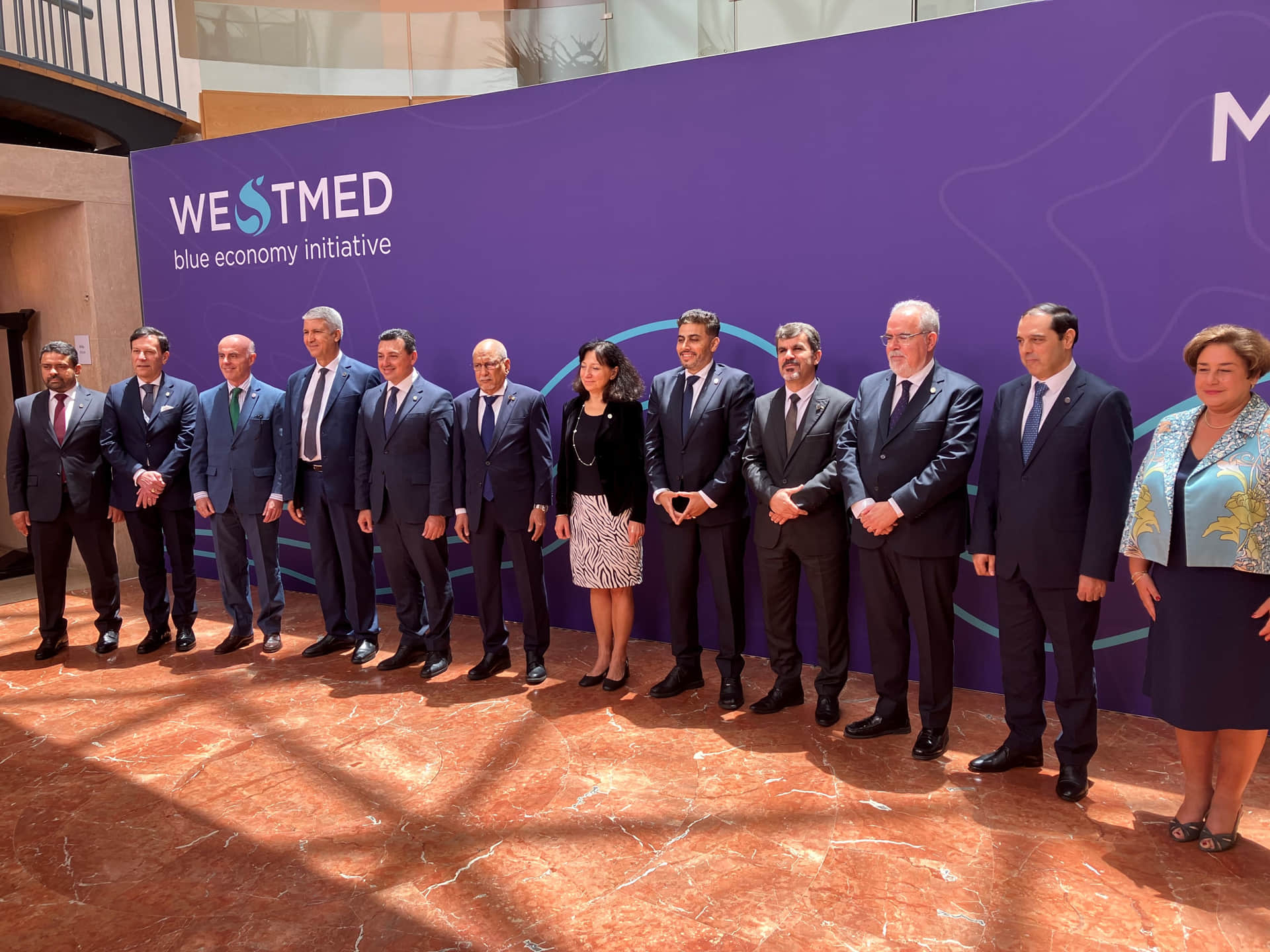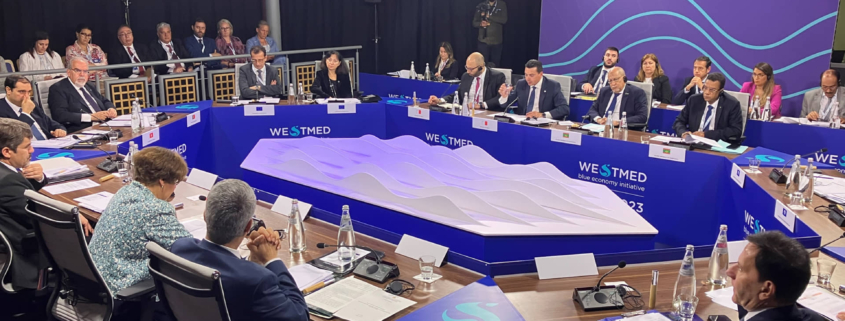WestMED countries re-commit to further develop a sustainable, resilient, decarbonized and circular blue economy for the Western Mediterranean.
On 23 June 2023, ministers and high-level representatives from the 10 WestMED countries (Algeria, France, Italy, Libya, Malta, Mauritania, Morocco, Portugal, Spain and Tunisia) met in Malta together with representatives of the European Commission and the Union for the Mediterranean in order to reassess and update the priorities stated in the WestMed Framework for Action as supported by the WestMED Initiative.
It follows the countries’ reports and the EC report evaluating the WestMED Initiative’s implementation so far, that listed as one its main recommendations to ‘reconfirm and streamline priorities.’
These priorities focus on addressing common sea basin challenges, resulting in a joint commitment to further develop a sustainable, resilient, decarbonized and circular blue economy, address climate change, adapt to its effects and halt i.e. reverse marine biodiversity loss.
This is the 3rd WestMED Ministerial Declaration with the first one being drafted in Naples 2017, inviting the WestMED countries to explore the added value and feasibility of appropriate maritime strategies, including at subregional level, and build on existing multilateral processes such as the 5+5 Dialogue and relevant UfM Ministerial Declarations.
On December 4, 2018 the countries adopted the 2nd WestMED Ministerial Declaration in Algiers approving the governance and management structure for the implementation of the initiative for the sustainable development of the blue economy in the Western Mediterranean (incl. the creation of the WestMED Assistance Mechanism) and the roadmap that contained 6 priorities.
Four years later, with this new 2023 declaration, the countries renewed and adjusted their commitments to the following priorities:
- Sustainable production and consumption, and in particular, through the support of the transition of Maritime Transport, Green shipping, and Ports towards carbon-neutrality and zero emission and ports as hubs for energy; Innovative and restorative aquaculture and fisheries and Coastal and maritime eco-Tourism.
- Maritime Clusters
- Blue skills and jobs
- Ocean literacy and youth
- Promoting Maritime Spatial Planning (MSP)
- Decarbonisation of the blue economy and, importantly, boosting the Marine Renewable Energy sectors
- Stepping up the efforts to tackle air and marine pollution
- Increasing ambition for preserving marine and coastal biodiversity in the Mediterranean
- Promoting training and technology transfer
- Developing coastal resilience solutions and early warning systems
- Maritime security and surveillance as a pre-condition for a prosperous and sustainable blue economy in the Mediterranean.
The declaration provides a renewed political commitment towards the sustainable management of the Mediterranean together with their efforts to recover from the Covid-19 crisis and tackle the serious impacts of climate change and environmental degradation while reinforcing the regional cooperation in the UFM region on Sustainable Blue Economy.
Through the Declaration, the countries also acknowledge the work done so far under the WestMED Initiative and highlight the need for synergies with other Sea Basin Strategies (the Atlantic Strategy and the Common Maritime Agenda for the Black Sea).
They welcome this new joint sea basins approach for a coordinated technical assistance which started at the end of 2022.
This new EU sea basin approach allows not only addressing the needs of each individual sea basin but also exchanging best practices and organizing national and regional events with themes that have clear cross-seabasin relevance, such as blue skills, blue investments, green shipping, and sustainable aquaculture.
The 2023 WestMED Declaration is fully in line with the 2nd UfM Ministerial Declaration on Sustainable Blue Economy adopted on 2 February 2021 and its related Roadmap for implementation. It is also fully aligned to the EC Communication on the sustainable approach to the Blue Economy in the EU, from May 2021, which addressed the transition from ‘Blue growth’ to a ‘Sustainable Blue Economy.’
Mr. Aaron Farrugia (Malta – Minister for Transport Infrastructure and Capital Projects) and Mr. Mohamed Ould Abidine Ould Maayif (Mauritania – Minister for Fishery and Maritime Economy) opened the Ministerial Conference as co-presidencies of the westMED Initiative.
Their opening remarks were followed by Ms. Charlena Vitcheva (European Commission – Director General for Directorate General Maritime Affairs and Fisheries – DG MARE) and Mr. Almotaz Abadi (Union for the Mediterranean – Deputy Secretary General for Water, Environment and Blue Economy).
Watch the opening remarks below (courtesy of the Maltese govt):
Read the Ministerial Declaration in full
The Ministerial Conference, under the guidance of WestMED’s Maltese Co-presidency, was organised back to back with the 2023 WestMED Stakeholder Conference that took place the previous day.




